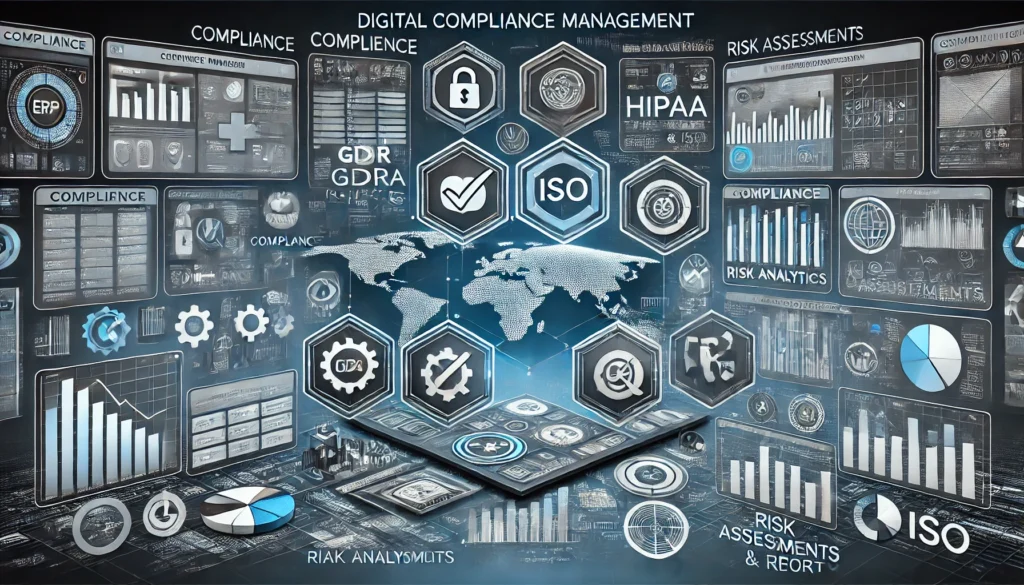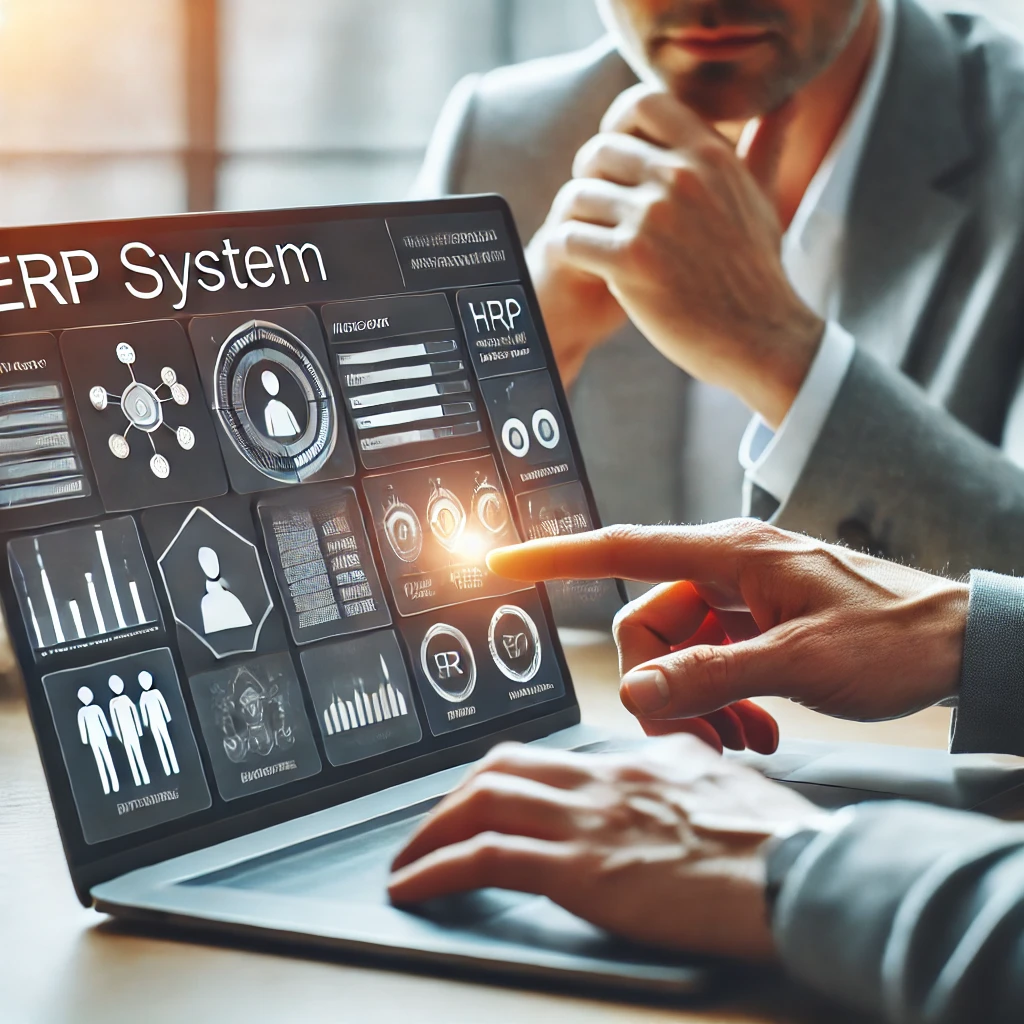How does ERP help in compliance with laws and industry standards

In today’s business landscape, compliance with laws and industry standards is critical for any organization. Companies need to adhere to a wide range of regulatory requirements, whether they pertain to financial reporting, data security, environmental regulations, or specific industry mandates. Non-compliance can result in severe penalties, loss of reputation, and legal consequences. Enterprise Resource Planning (ERP) systems have emerged as powerful tools that help businesses navigate the complex web of regulations and standards. This article explores how ERP systems assist in compliance management, reduce risks, and enhance organizational efficiency.
Understanding ERP Systems and Their Role in Compliance
Key Features of ERP Systems that Support Compliance
Real-Time Data Management and Reporting
Streamlined Audit Management
Enhanced Data Security and Privacy Compliance
Governance, Risk, and Compliance (GRC) Integration
Benefits of ERP in Specific Industries
Challenges in Using ERP for Compliance
Best Practices for Implementing ERP for Compliance
Understanding ERP Systems and Their Role in Compliance
Enterprise Resource Planning (ERP) systems are integrated software solutions that streamline various business processes across an organization, such as finance, human resources, supply chain, manufacturing, and customer relationship management. By centralizing data and providing a unified platform, ERP systems enhance visibility and control, which is crucial for maintaining compliance with various laws and industry standards.
They offer a holistic perspective on the organization’s operations, facilitating improved decision-making and ensuring compliance with regulatory standards.
Key Features of ERP Systems that Support Compliance
Modern ERP systems come equipped with several features that directly support regulatory compliance. These include automated reporting, data encryption, role-based access controls, audit trails, and document management. These features ensure that data is accurate, secure, and easily traceable, helping organizations comply with legal and industry standards. Automated alerts and notifications for regulatory updates or non-compliance issues further aid in proactive compliance management
Real Time Data Management and Reporting
One of the primary benefits of an ERP system is its ability to manage and report data in real time. Accurate and timely reporting is a fundamental requirement for compliance in areas like financial accounting, tax filing, and inventory management. ERP systems facilitate this by centralizing all data and generating reports that comply with regulatory standards, such as GAAP (Generally Accepted Accounting Principles) or IFRS (International Financial Reporting Standards). This capability reduces errors, ensures consistency, and provides quick access to necessary information for audits and inspections
Streamlined Audit Management
Audits are a critical aspect of regulatory compliance. An ERP system provides built-in audit management tools that help organizations conduct internal and external audits more efficiently.
The system tracks a detailed record of all transactions, modifications, and user actions, which is crucial for ensuring accountability and transparency. Automated workflows and documentation management in ERP systems ensure that all necessary compliance documents are up-to-date and readily available for auditors, reducing the time and effort involved in the auditing process
Enhanced Data Security and Privacy Compliance
With growing concerns around data privacy and security, compliance with data protection laws such as GDPR (General Data Protection Regulation) and CCPA (California Consumer Privacy Act) is paramount. ERP systems come with robust data security features, including data encryption, multi-factor authentication, and role-based access controls, which help in protecting sensitive information. By ensuring that only authorized personnel have access to critical data, ERP systems help organizations comply with privacy regulations and prevent data breaches
Governance, Risk, and Compliance (GRC) Integration
ERP systems often integrate with Governance, Risk, and Compliance (GRC) modules, providing a holistic approach to managing risks and ensuring compliance. GRC integration allows organizations to identify, assess, and mitigate risks related to regulatory changes, financial transactions, and operational activities. By automating compliance-related tasks and maintaining an updated repository of regulations and standards, GRC modules within ERP systems help organizations stay ahead of compliance requirements
Benefits of ERP in Specific Industries
Different industries have specific compliance requirements. For example, the healthcare industry must comply with HIPAA (Health Insurance Portability and Accountability Act), while the manufacturing sector might focus on OSHA (Occupational Safety and Health Administration) regulations. ERP systems are highly customizable and can be tailored to meet industry-specific standards, ensuring that organizations in various sectors remain compliant. This customization includes modules for handling industry-specific reporting, quality control, and safety management
Challenges in Using ERP for Compliance
While ERP systems offer numerous benefits for compliance, there are also challenges to consider. These include the high cost of implementation, the need for continuous updates to keep up with changing regulations, and the complexity of integrating ERP systems with existing compliance frameworks. Organizations must also train employees to use the ERP system effectively and ensure that data input is accurate to avoid compliance issues
Best Practices for Implementing ERP for Compliance
To maximize the benefits of ERP systems for compliance, organizations should follow certain best practices. These include choosing the right ERP solution that fits their specific industry needs, involving key stakeholders in the implementation process, conducting regular training sessions for employees, and continuously monitoring and updating the system for regulatory changes. It is also important to work with experienced ERP vendors who understand the regulatory landscape and can provide customized solutions to meet compliance requirements
Conclusion
ERP systems play a vital role in helping organizations achieve and maintain compliance with laws and industry standards. By centralizing data, automating compliance-related tasks, enhancing data security, and providing real-time reporting, ERP systems help organizations reduce risks, improve efficiency, and avoid costly penalties. As regulations continue to evolve, the role of ERP systems in compliance management will become even more critical, making them an essential tool for modern businesses





